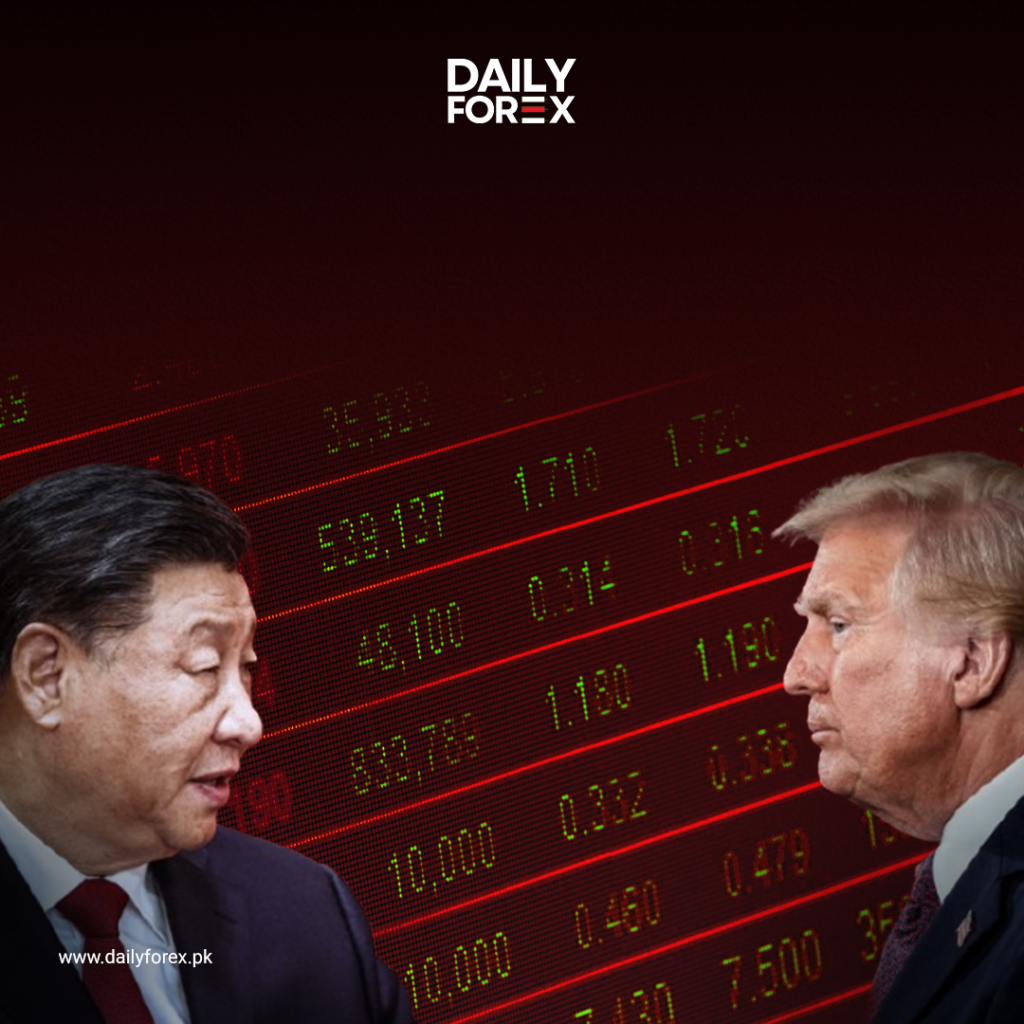As the U.S. intensifies its economic confrontation with China, experts are now warning that Donald Trump’s aggressive tariff strategy may be doing more harm to America than to its rivals. With soaring tariffs, weakening alliances, and an increasingly isolated economic policy, many are asking — is Washington undermining its own global power?
The Trump administration’s evolving trade stance has solidified around a singular focus: Punish China. The latest wave of 145% tariffs on Chinese goods, while framed as a patriotic effort to protect American jobs, is being widely criticized as a short-sighted economic gamble with global consequences.
🛑 Is Trump’s America Sacrificing Economic Strength for Political Rhetoric?
White House officials suggest that other nations may be spared Trump’s tariff wrath — if they block Chinese imports themselves. This puts allies in a difficult position: either join Washington’s anti-China crusade or face economic penalties.
But what is the actual goal?
- Cripple China’s economy?
- Pressure Beijing into trade concessions?
- Or simply score political points at home?
💥 Tariffs Are Not Strategy — They’re Economic Self-Sabotage
While Vice President JD Vance boldly claims, “a million cheap toasters aren’t worth one American factory job,” economists disagree.
Experts argue that true economic prosperity lies in global integration, competitive innovation, and strategic technological partnerships — not protectionism and isolation.
“Instead of returning to economic greatness, the U.S. is risking long-term damage to both growth and global influence,” one analyst warned.
🧠 Security Through Economics — or the Other Way Around?
Trump’s policies are shaped by a dangerous illusion:
- That economic power and military security can be separated
- That America can stand alone in a multipolar world
- That alliances can be ignored or dismantled without consequence
In reality, economic strength and strategic security go hand in hand. Weakening global trade ties also means weakening America’s influence in forums like NATO, the UN, and G7.
⚠️ How Trump’s China Policy Could Backfire Globally
- Imposing extreme tariffs without coordination pushes rivals closer together
- Allies feel alienated, making collective security weaker
- China may double down on alliances with Russia, Iran, and the Global South
- Overreach in economic aggression may be seen as a de facto act of war, rather than smart containment
🌍 What It Means for Pakistan and Other Emerging Economies
- 📉 Trade tensions between the U.S. and China raise global inflation risks
- 💵 Currency markets remain volatile, directly impacting USD/PKR exchange rates
- 📦 Pakistan’s exports may benefit in some sectors, but global demand could shrink
- 🏦 Geopolitical uncertainty deters foreign direct investment and long-term planning
🔄 A Smarter Path Forward: Integration Over Isolation
The better solution?
- Build rule-based, multilateral coalitions
- Promote fair trade and innovation-driven growth
- Merge economic cooperation with strategic partnerships
This strategy not only preserves U.S. dominance, but also helps stabilize global markets — something developing nations like Pakistan depend on.
📉 Final Verdict: Trump’s Trade War May Be America’s Economic Trap
In its attempt to contain China, the U.S. may be cornering itself.
High tariffs, broken alliances, and economic overreach don’t restore manufacturing—they shatter trust.
If Washington wants to maintain its edge in both economics and security, it must embrace cooperation, not confrontation.
📢 Stay ahead of the global game with www.dailyforex.pk — your hub for deep economic insights, trade analysis, and the impact of global policy decisions on Pakistan’s financial future.





1 Comment
Pingback: Asian Markets Dip on Trump-Fed Tensions, Tariff Fears